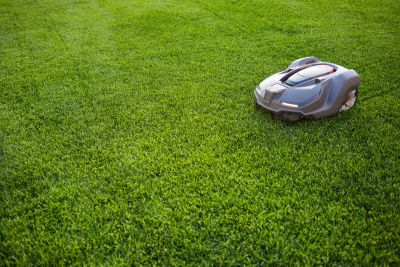Types of Smart Garden Technology
Robotic mowers, automatic sprinklers, robotic cultivators, and even smart weeders have the potential to make your life a whole lot easier.
Robotic Lawn Mowers
Robotic vacuum cleaners have gradually caught on with homeowners, and they’ve paved the way for robotic lawn mowers. Maintaining gardens by using robotic lawn mowers can be done from your smartphone, Bluetooth, or Wi-fi. So far, they tend to be most effective in relatively small, smooth yards. Some gardeners are reluctant to try this form of remote garden care for fear that the robot may roll into the street or miss a turn while it’s searching for its perimeter markers. There are also very valid concerns about the use of robotic lawn mowers around pets and young children. Stay tuned for updates in remote garden care. It’s actually even possible (although very expensive) to buy robotic lawn mowers that mulch leaves, and you can tell the mower exactly where to dump the mulch. Even snow removal is now a possibility with newer smart garden technology.
Smart Watering Systems
Sprinkler timers seem like a relic of the past compared to smart watering systems that range from relatively simple gadgets that light up when the plants need fertilizer or water to extremely sophisticated systems that water on their own. You can program schedules into some watering systems, while others will send you notifications if your garden needs water or fertilizer. Some can tune into your local weather report and monitor conditions, including temperature and humidity.
Mechanical Cultivators
Home gardeners will have to wait awhile for mechanical cultivators. The sophisticated machines are being tested at a few large commercial operations. It may be awhile before all the kinks are ironed out, such as the ability to recognize weeds from plants but soon enough gardeners may be maintaining gardens remotely with such devices.
Automatic Weed Removal
Using robots in the garden may also include weed removal. Solar-powered weed removal systems can travel through sand, mulch, or soft soil snipping and hacking weeds as they go, while leaving your prized carrots and tomatoes alone. They generally concentrate on weeds less than one inch (2.5 cm.) tall.
